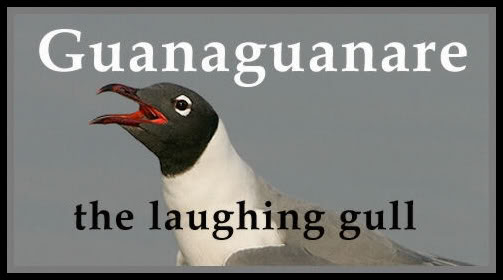"The central theme of my writing has been to demonstrate that allowing institutional purposes to pre-empt our own has been destructive of life, liberty, peace and, ultimately, of civilizations. We have long walked a line between our need for social organization – as a way of satisfying various mutual needs – and becoming so attracted to the systems that serve our interests that we want to make them permanent. We move imperceptibly from associations that we control in pursuit of our ends, to organizations that become ends in themselves, and that control us in order to foster their interests. When this occurs, the informal organization has metamorphosed into an institution. I have developed this process more fully in my book, Calculated Chaos.
"An institution is no longer a convenient tool for our mutual benefit, but an end in itself; its own raison d’être. It has taken on a life of its own, one that differs from, and usurps, our purposes. Because they can only function and survive through using people, institutions require humans to identify their sense of being with them. To this end, government schools have been established, whose primary purpose has always been to condition young minds in the necessity and desirability of the institutional scheme of things. In the words of Ivan Illich, “[s]chool is the advertising agency which makes you believe that you need the society as it is.” Schools also help us learn to seek meaningful and well-paying careers within institutional hierarchies...............................................................................................................................
"When we identify ourselves with, and attach ourselves to these institutional entities, we absorb their values; their purposes; their modus operandi. Such practices of attachment can be analogized to a cancer that metastasizes our inner sense of being. In the process, we become dehumanized, for institutions have no souls; no emotions; no spiritual, moral, or intuitive sense. They neither cry, bleed, love, or experience elation. They are machines and, like other machines, operate solely on the basis of mechanics, linear processes, and material ends. When we become institutionalized, we become little more than robots – servo-mechanisms – functioning in response to how we have been programmed to perform.
"The emotional and spiritual dimensions that make us human are of no value to institutions which, in times of political wrong-doing, urge us to suppress such sentiments. Anything that is nonmaterial is immaterial to members of the institutional order. In place of deeply-held philosophic principles, institutions have policies; their sense of “meaning” consists only of perpetuating themselves by maximizing their power and material wealth. To such entities, human beings have value only as fungible resources to exploit on behalf of institutional ends.
"It would be easy to condemn the soldiers who engaged in this slaughter as “evil” or “depraved” or “insane” beings. Such is the manner in which we have long accustomed ourselves to blanking out any awareness of the “dark side” of our own unconscious. In such ways have we isolated ourselves from the Hitlers, Stalins, Mao Tse-Tungs, Pol Pots, and other tyrants, leaving us with the comforting feeling that we shared nothing in common with them. But history informs us – if we will only look – that, once we have identified ourselves with any purpose beyond ourselves, we can become capable of the most vicious forms of wrongdoing. How do otherwise decent men participate in a lynch-mob?
"The state – an institution that is defined in terms of enjoying a monopoly on the use of violence – is particularly attractive to men and women whose “dark sides” are closer to the surface than those of more tolerant and peaceful persons. When the state energizes this “dark side” – which it does particularly in wartime, the quality that led Randolph Bourne to identify war as “the health of the state” – otherwise decent men and women can turn themselves into agents of savage brutality. When their murderous acts are conducted on behalf of the state – with which most people identify themselves – their actions acquire an aura of legitimacy that would not have obtained under other circumstances; a distinction that would prevent them from becoming serial killers upon their return home.
"Identifying ourselves with the state, in other words, has a way of turning us into sociopaths. It is not that the state does this to us, but that our willingness to attach ourselves to external entities – and the values upon which they are grounded – separates us from our focused inner sense of being. This applies not just to the pilots of helicopter gun-ships over Baghdad, but to more visible political figures such as Madeleine Albright – who defended her Clinton-era policies that led to the deaths of 500,000 Iraqi children – and Janet Reno, who defended her massacre of Branch Davidian men, women, and children at Waco. More recent application of these dynamics are found in George W. Bush’s fascination with starting pre-emptive wars against the rest of the world, and Barack Obama’s apparent willingness to use nuclear weapons in future pre-emptive attacks, as well as to assassinate Americans.
"People who are willing to embrace – or even to tolerate – such sociopathic conduct, have lost all touch with what it means to be human; have lost their souls. No federal bailouts; no increase in the Dow Jones Industrial Average, or decrease in unemployment levels, will overcome this loss. Nor can any “stimulus package” be enacted – with or without bipartisan support – to restore the personal integrity long since lost.
"There was a time, not so many decades ago, when brute force – particularly when engaged in by police and military agents of the state – was at least frowned upon, if not condemned, by decent men and women. The threshold level for such practices continues to get progressively lower. A major contribution to Barry Goldwater’s defeat in the 1964 presidential campaign, was the unfounded fear that he might be willing to use nuclear weapons in the war in Vietnam. Modernly, Bush’s and Obama’s willingness to initiate a nuclear war have raised no major outcries from most Americans, who seem to prefer “hope” (i.e., wishful thinking) over intelligent “understanding” as a way of making the world free, peaceful, and productive.
"When the 2008 GOP presidential candidate, John McCain, can garner nearly 60,000,000 votes with his sociopathic dance of “bomb, bomb, bomb Iran,” should we be shocked by the butcherous conduct of some American helicopter pilots?" ---Excerpt from the article "How We Lost Our Souls" by Butler Shaffer.
"Patria est communis omnium parens" - Our native land is the common parent of us all. Keep it beautiful, make it even more so.
Blessed is all of creation
Blessed be my beautiful people
Blessed be the day of our awakening
Blessed is my country
Blessed are her patient hills.
Mweh ka allay!
Guanaguanare














0 comments:
Post a Comment